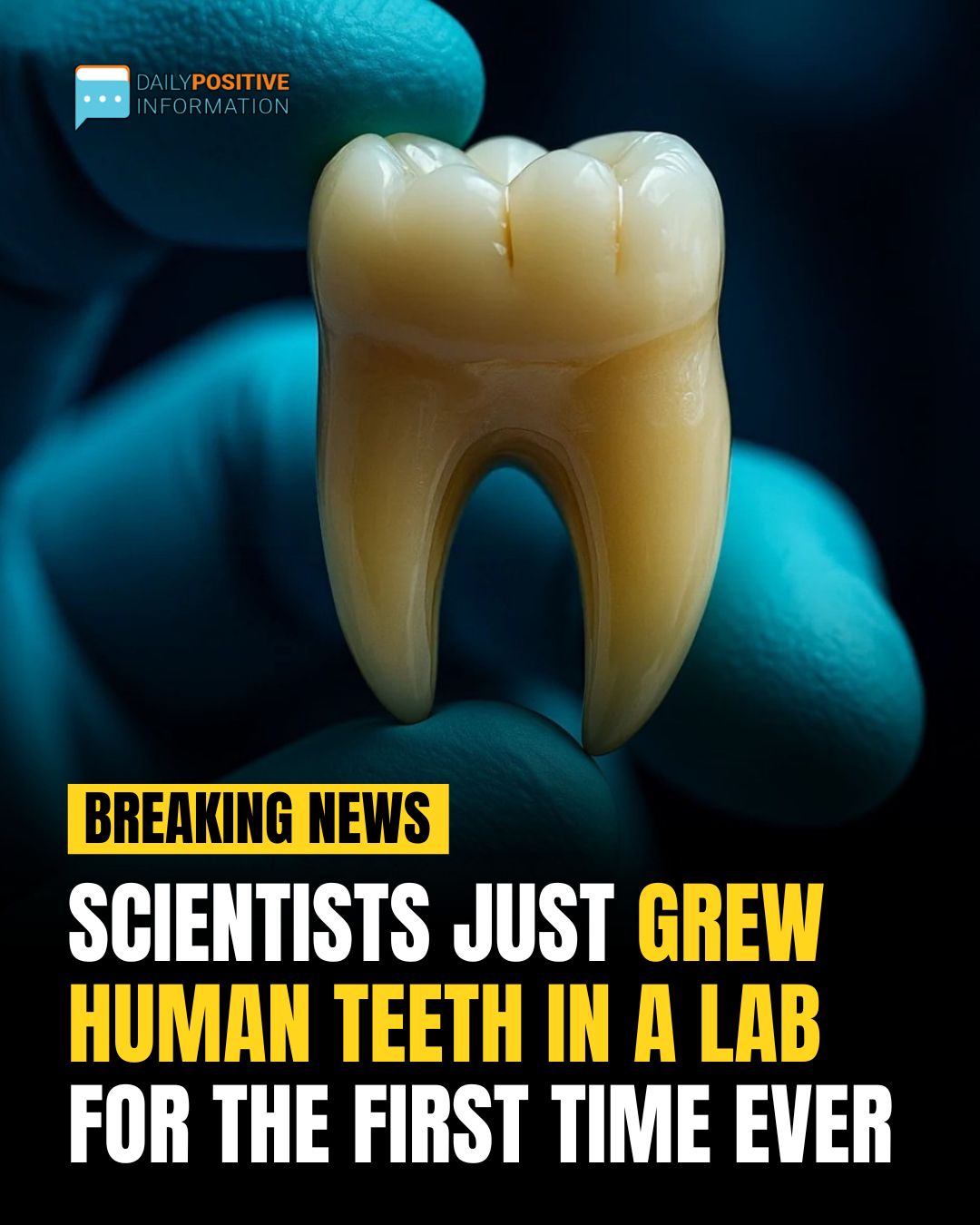Scientists have achieved a groundbreaking milestone in regenerative dentistry by successfully growing a fully formed human tooth in a lab, signaling a potential future where patients can replace lost teeth with biologically grown alternatives instead of relying on artificial implants or dentures.

The study, conducted by researchers from King’s College London in collaboration with Imperial College, focused on replicating the environment necessary for natural tooth development using a specially engineered material. This innovation allowed scientists to initiate tooth formation using the patient’s own cells, offering hope for personalized dental treatments that grow directly into the jaw, mimicking the structure and function of real teeth.
This advancement could be especially important for patients who have lost adult teeth due to disease, trauma, or decay. Traditional methods such as crowns, fillings, or dental implants, while commonly used, have limitations. Fillings can weaken the surrounding tooth structure and often require replacement, while implants involve surgery and may not perfectly replicate the natural performance of a tooth. Over time, these artificial solutions may break down, become less effective, or cause additional complications. The ability to grow human teeth in a lab offers a promising biological alternative that could naturally integrate with the body and adapt over time, potentially reducing the need for invasive procedures. The key to this breakthrough lies in a new material that mimics the extracellular matrix—the environment that supports and signals developing cells in the body.
Dr. Ana Angelova Volponi, one of the study’s lead authors and director of the MSc program in Regenerative Dentistry at King’s College London, explained that this specially designed material creates a setting where cells can communicate and trigger the formation of teeth “in a dish.” She emphasized the potential for this approach to reshape the way we think about dental care, offering longer-lasting and more natural solutions to tooth loss. Co-author Xuechen Zhang also highlighted the importance of the material’s flexibility, describing it as “tuneable” and capable of being adjusted to optimize the conditions for tooth-making.
Unlike earlier attempts that delivered developmental signals all at once—which often failed—this method allows for gradual signaling, closely mimicking how teeth naturally form in the body. The material, developed in partnership with Imperial College, successfully enabled cell-to-cell communication, sparking the process of creating tooth structures from cultured cells. Now that the researchers have managed to simulate the early stages of tooth formation in a lab, the next step is figuring out how to translate this success into real-world clinical treatments. Zhang explained two possible approaches: one involves transplanting early-stage tooth cells directly into the patient’s mouth at the site of a missing tooth and allowing them to grow in place, while the other involves growing an entire tooth in the lab before implanting it. Both methods would begin with the early development of tooth cells in a controlled lab setting. Zhang also pointed out the shortcomings of current solutions, noting that fillings, although widely used, are not ideal. Over time, they can cause structural weakness in teeth and contribute to additional decay or sensitivity. Implants, on the other hand, require surgery and precise alignment with the bone, and even then, they remain artificial and may not fully restore the function of a natural tooth. This new bioengineered approach, by contrast, holds the promise of creating a natural, living tooth that functions just like the one it replaces. Looking ahead, researchers plan to test both delivery methods in preclinical models to evaluate their safety, reliability, and compatibility with standard dental care. If these methods prove effective, they could lead to personalized treatments where patients receive custom-grown teeth made from their own cells. This would not only reduce the risk of rejection but also offer a revolutionary alternative to the current standard of care in dentistry. As trials continue, the possibility of growing real teeth in the lab brings us one step closer to changing how we treat tooth loss forever.





